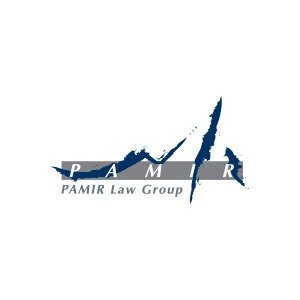Best Sanctions & Export Controls Lawyers in Taipei
Share your needs with us, get contacted by law firms.
Free. Takes 2 min.
List of the best lawyers in Taipei, Taiwan
About Sanctions & Export Controls Law in Taipei, Taiwan
Sanctions and export controls in Taipei, Taiwan, are legal measures that regulate the flow of goods, services, technology, and financial transactions to specific jurisdictions, organizations, or individuals for reasons of national security, foreign policy, and compliance with international obligations. Taiwan, officially known as the Republic of China, is not a United Nations member but often aligns with major international standards, including those set by the United States, the European Union, and other key global partners. The country's unique geopolitical situation means that its sanctions and export controls laws must balance domestic interests with cross-strait relations and international compliance.
Why You May Need a Lawyer
Navigating sanctions and export controls can be complex, especially for businesses engaged in cross-border trade, technology transfer, or international finance. Common situations where legal assistance is essential include:
- Ensuring compliance with Taiwanese and international export control regulations for sensitive or dual-use items
- Dealing with investigations or enforcement actions by local authorities for suspected violations
- Seeking advice on transactions involving sanctioned countries, entities, or individuals
- Understanding the legal implications of business activities with Mainland China, North Korea, Iran, or other high-risk areas
- Adapting to changes in export control regulations or international sanctions lists
- Applying for export licenses or government authorizations
- Conducting internal audits or risk assessments related to export controls compliance
Local Laws Overview
Taiwan has developed robust export control and sanction regimes through laws, administrative rules, and specialized authorities. Key legal aspects include:
- The Foreign Trade Act: This governs the export and import of goods and technology, including licensing, restrictions, and penalties for violations.
- The Export Control Act: Newly instituted, this act provides a comprehensive framework for classifying and controlling dual-use and strategic goods.
- Customs Administration: Enforces rules to prevent illegal exports and imports at all ports of entry.
- Control of arms, chemical, biological, and nuclear items: Special attention is given to the export of military items and dual-use goods.
- International Sanctions: While Taiwan is not a UN member, it often synchronizes its exclusion lists with those designated by the U.S. Department of Treasury, EU, and other partners. Businesses should check updated sanctions lists regularly.
- Penalties: Violations can result in hefty fines, imprisonment, export license revocations, or reputation damage.
Frequently Asked Questions
What are sanctions and export controls?
Sanctions are official restrictions that prohibit transactions with specific countries, organizations, or people. Export controls are regulations that restrict the export of certain items, technologies, or services, especially those with national security or military implications.
Who enforces export control laws in Taipei, Taiwan?
The Bureau of Foreign Trade (BOFT) under the Ministry of Economic Affairs is primarily responsible, with the Customs Administration and other relevant agencies playing supporting roles.
Do Taiwan's rules apply to digital goods and services?
Yes, export controls and certain sanctions not only cover tangible goods but also intangible items such as technologies, software, and technical data transmitted electronically.
What constitutes a violation of export controls in Taiwan?
Sending controlled goods, technology, or services to entities or countries without the required government license or approval, or acting contrary to listed prohibitions, constitutes a violation.
Are there differences between Taiwan's sanctions and US, EU, or UN sanctions?
Yes. While Taiwan often harmonizes its sanctions with those of major international partners, each jurisdiction's lists and specific measures may differ. Seeking local legal advice is advised for clarity.
How does export control affect businesses trading with Mainland China?
There are additional controls and reporting requirements for cross-strait trade, especially for sensitive or strategic technologies that could impact national security.
What are the penalties for violating export controls or sanctions?
Penalties may include heavy fines, imprisonment for responsible individuals, revocation of business licenses, seizure of goods, and reputational harm.
How can I find out if my product is subject to controls or restrictions?
Check with the Bureau of Foreign Trade’s published lists or consult with a lawyer specializing in export controls for classification and assessment.
What should I do if I receive a notice of investigation or penalty?
You should seek legal counsel immediately to understand the allegations, prepare a response, and protect your rights and interests during the investigation.
Are licenses required for all exports from Taiwan?
Not all exports require licenses, but strategic, sensitive, dual-use, or restricted items generally do. Checking the latest regulations is necessary before proceeding.
Additional Resources
Here are some useful organizations and resources related to sanctions and export controls in Taipei, Taiwan:
- Bureau of Foreign Trade (BOFT), Ministry of Economic Affairs: For export licensing, policies, and regulatory guidance
- Customs Administration, Ministry of Finance: For information on import-export compliance at borders
- Financial Supervisory Commission (FSC): For financial sanctions and banking sector compliance
- Taipei Bar Association: For finding legal professionals specializing in sanctions and export controls
- Taiwan External Trade Development Council (TAITRA): Provides resources and seminars on trade compliance
Next Steps
If you require legal assistance with sanctions or export controls in Taipei, Taiwan:
- Identify your specific legal concern and gather any relevant documents.
- Contact a qualified lawyer or law firm with expertise in sanctions and export controls.
- Prepare a list of questions and facts before your consultation to ensure you cover all important points.
- Stay updated on any changes in local and international regulations that may affect your business or personal situation.
- Adopt compliance best practices to avoid future issues, such as internal training and regular audits.
Lawzana helps you find the best lawyers and law firms in Taipei through a curated and pre-screened list of qualified legal professionals. Our platform offers rankings and detailed profiles of attorneys and law firms, allowing you to compare based on practice areas, including Sanctions & Export Controls, experience, and client feedback.
Each profile includes a description of the firm's areas of practice, client reviews, team members and partners, year of establishment, spoken languages, office locations, contact information, social media presence, and any published articles or resources. Most firms on our platform speak English and are experienced in both local and international legal matters.
Get a quote from top-rated law firms in Taipei, Taiwan — quickly, securely, and without unnecessary hassle.
Disclaimer:
The information provided on this page is for general informational purposes only and does not constitute legal advice. While we strive to ensure the accuracy and relevance of the content, legal information may change over time, and interpretations of the law can vary. You should always consult with a qualified legal professional for advice specific to your situation.
We disclaim all liability for actions taken or not taken based on the content of this page. If you believe any information is incorrect or outdated, please contact us, and we will review and update it where appropriate.
















